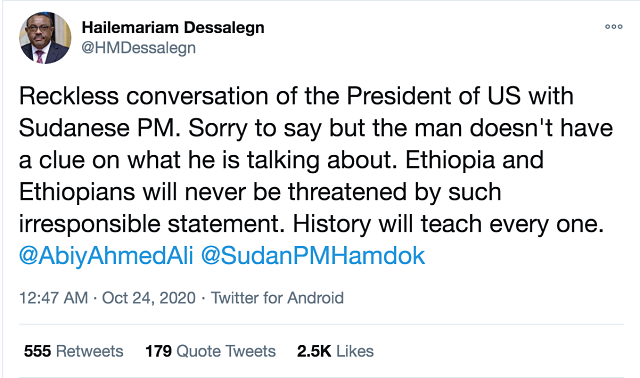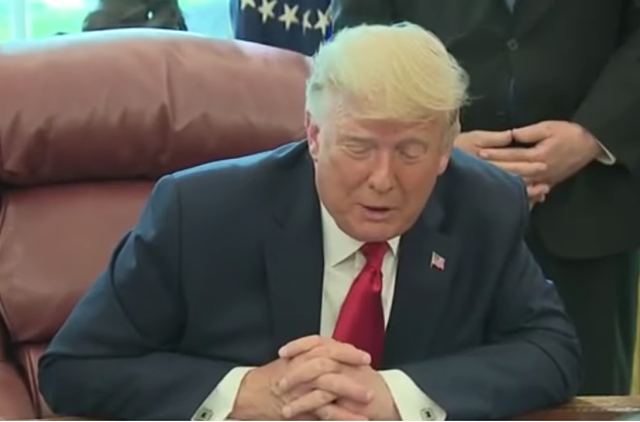 The fallout from Trump’s recent GERD meltdown in which he angrily asserted that Egypt should "blow up" Ethiopia's Nile dam because, apparently, Ethiopia had hurt his personal feelings when it rejected his so called "deal" that would have jeopardized the country's sovereignty continues to reverberate on social media as well as on local and international press. Below are the latest developments. (Image: YouTube screenshot)
The fallout from Trump’s recent GERD meltdown in which he angrily asserted that Egypt should "blow up" Ethiopia's Nile dam because, apparently, Ethiopia had hurt his personal feelings when it rejected his so called "deal" that would have jeopardized the country's sovereignty continues to reverberate on social media as well as on local and international press. Below are the latest developments. (Image: YouTube screenshot)
THE LATEST UPDATE:
Updated: October 30th, 2020
—
Ethiopia to Trump: We Will Not Give In To ‘Aggression’ In Dam Dispute (UPDATE)
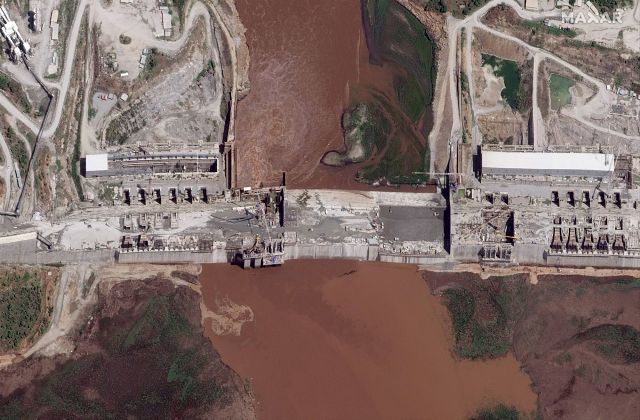
The $4.6 billion Grand Ethiopian Renaissance Dam is a source of national pride in Ethiopia. Without naming Trump or the United States, Ethiopian Prime Minister Abiy Ahmed’s office issued a blunt statement on Saturday saying Ethiopia would “not cave in to aggressions of any kind.” (Photo: Maxar Technologies via AP)
NBC News
Updated: October 24th, 2020
Ethiopia denounces Trump remark that Egypt could ‘blow up’ Nile dam
Ethiopia on Saturday denounced “belligerent threats” over the huge hydropower dam it has nearly completed on the Blue Nile river, less than 24 hours after President Donald Trump said Egypt could “blow up” the project.
Trump made the comment while announcing that Sudan, which sits downstream from the dam, would start to normalize ties with Israel on Friday.
“They will end up blowing up the dam,” Trump said, referring to Egypt. “And I said it and I say it loud and clear, they’ll blow up that dam. And they have to do something.”
The $4.6 billion Grand Ethiopian Renaissance Dam is a source of national pride in Ethiopia, aimed at pulling millions of people out of poverty, but it has entangled neighboring east African nations Egypt and Sudan, which also rely on the river.
Without naming Trump or the United States, Ethiopian Prime Minister Abiy Ahmed’s office issued a blunt statement on Saturday, which said the east African nation would “not cave in to aggressions of any kind.”
“These threats and affronts to Ethiopian sovereignty are misguided, unproductive, and clear violations of international law,” the statement said.
It added: “As a developing nation, Ethiopia may be confronted with poverty but are rich with history, patriotic citizens whose commitment to defend their country’s sovereignty is unparalleled and an ambition and a well-articulated plan for prosperity.”
Former Ethiopian Prime Minister Hailemariam Dessalegn tweeted on Saturday: “The man doesn’t have a clue on what he is talking about,” calling Trump’s remarks “reckless” and “irresponsible.”
Ethiopian Foreign Affairs Minister Gedu Andargachew later summoned U.S. Ambassador to Addis Ababa Mike Raynor to seek clarifications on the comments.
“The incitement of war between Ethiopia and Egypt from a sitting U.S. president neither reflects the longstanding partnership and strategic alliance between Ethiopia and the United States nor is acceptable in international law governing interstate relations,” Gedu’s ministry said in a statement.
Earlier this year, Trump told the State Department to suspend millions of dollars in aid to Ethiopia because of the dispute over the dam. A move that angered Ethiopians.
“They will never see that money unless they adhere to that agreement,” Trump said Friday.
Ethiopia says the colossal dam project could help it become a major power exporter and develop its economy. Egypt depends on the Nile to supply its farmers and population of 100 million with fresh water while Sudan contends with frequent droughts.
The country celebrated the first filling of the dam in August, to the dismay of Egypt.
There was no comment from the Egyptian government on Trump’s latest remarks.
Egypt has repeatedly said it wants to settle the dam dispute through diplomatic channels, but has also said it would use “all available means” to defend the interests of its people.
The Blue Nile joins the White Nile in Sudan to become the Nile, and about 85 percent of the river’s flow originates from Ethiopia. Officials in Ethiopia hope the dam, now more than three-quarters complete, will reach full power-generating capacity by 2023.
The Associated Press and Reuters contributed to this report.
—
Ethiopia says it will not cave to ‘aggression’ in dam dispute
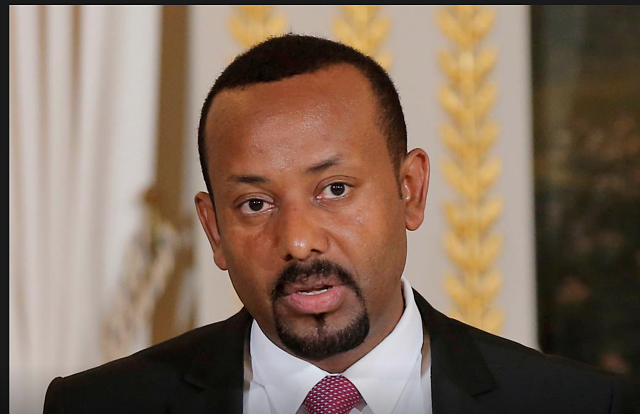
“Occasional statements of belligerent threats to have Ethiopia succumb to unfair terms still abound,” Abiy’s office said. “These threats and affronts to Ethiopian sovereignty are misguided, unproductive, and clear violations of international law.” (Reuters)
Reuters
Updated: October 24th, 2020
Ethiopia says it will not cave to ‘aggression’ in dam dispute
NAIROBI (Reuters) – Ethiopia said on Saturday that threats of any kind towards resolving a dispute with its neighbours over the filling and operation of a massive hydropower dam were “misguided, unproductive and clear violations of international law”.
Prime Minister Abiy Ahmed’s office made no mention of any person or any country in a statement on the Grand Ethiopian Renaissance Dam (GERD), which is at the centre of a dispute over Nile water supplies.
But his comment came hours after U.S. President Donald Trump held a phone call with the Sudanese Prime Minister Abdalla Hamdok in which they called for an amicable solution between Ethiopia and Egypt.
In the call, held in front of reporters at the White House, Trump said he had also told Egypt the same thing, saying it was a dangerous situation and that Cairo could end up “blowing up that dam.”
Ethiopia, Sudan and Egypt have been locked in a bitter dispute over the filling and operation of the GERD, which remains unresolved although the reservoir behind the dam began filling in July.
“Occasional statements of belligerent threats to have Ethiopia succumb to unfair terms still abound,” Abiy’s office said. “These threats and affronts to Ethiopian sovereignty are misguided, unproductive, and clear violations of international law.”
The first phase of filling the dam completed in August, Abiy’s office said.
—
Related:
Ethiopia blasts Trump remark that Egypt will ‘blow up’ dam (AP)
The Associated Press
By ELIAS MESERET
Updated: October 24th, 2020
ADDIS ABABA, Ethiopia (AP) — Ethiopia on Saturday denounced “belligerent threats” over the huge dam it has nearly completed on the Blue Nile River, a day after U.S. President Donald Trump said downstream Egypt will “blow up” the project it has called an existential threat.
Ethiopia’s foreign minister summoned the U.S. ambassador to seek clarification, saying “the incitement of war between Ethiopia and Egypt from a sitting U.S. president neither reflects the longstanding partnership and strategic alliance between Ethiopia and the United States nor is acceptable in international law governing interstate relations,” a statement said.
Without naming Trump or the U.S., Prime Minister Abiy Ahmed’s office issued a separate critical statement amid an outcry in Ethiopia over Trump’s latest threat over the dam. The $4.6 billion Grand Ethiopian Renaissance Dam is a source of national pride, aimed at pulling millions of people from poverty.
“The man doesn’t have a clue on what he is talking about,” Former Prime Minister Hailemariam Dessalegn tweeted, calling Trump’s remark reckless and irresponsible.
Trump made the comment while announcing that Sudan would start to normalize ties with Israel. Downstream Sudan is a party to the talks with Ethiopia and Egypt over the disputed dam. “They (Egypt) will end up blowing up the dam,” Trump said. “And I said it and I say it loud and clear … they’ll blow up that dam. And they have to do something.”
The U.S. president earlier this year told the State Department to suspend millions of dollars in aid to Ethiopia because of the dam dispute, angering Ethiopians who had accused the U.S. of being biased during its earlier efforts to broker a deal on the project among Ethiopia, Egypt and Sudan. Ethiopia walked away from those talks.
“They will never see that money unless they adhere to that agreement,” Trump said Friday.
“Occasional statements of belligerent threats to have Ethiopia succumb to unfair terms still abound,” the statement by the Ethiopian prime minister’s office said. “These threats and affronts to Ethiopian sovereignty are misguided, unproductive, and clear violations of international law.”
It added: “Ethiopia will not cave in to aggressions of any kind.”
There was no comment from the Egyptian government on Trump’s remarks, but pro-government media covered them extensively. Egypt has repeatedly said it wants to settle the dispute through diplomatic means, but it has said it would use “all available means” to defend the interests of its people.
Ethiopia celebrated the first filling of the dam in August, citing heavy rains, to the dismay of Egypt. Ethiopia later banned flights over the dam amid concerns over possible military action by Egypt.
Now, with Trump’s new remarks, some Ethiopians are urging Ethiopian Americans to help vote him out of office in next month’s election.
Worried by the prospect of further friction between two of Africa’s most powerful and populous countries, European Union representative Josep Borrell said in a statement that “now is the time for action and not for increasing tensions,” adding that a deal on the dam is within reach.
The statement by Abiy’s office said the talks with Egypt and Sudan have shown significant progress since the African Union has stepped in to oversee them. Trump’s statement could undermine that process, said Abel Abate Demissie, an associate fellow at Chatham House, adding that it proves the U.S. wasn’t an honest broker from the start.
Ethiopia says the colossal dam could help it become a major power exporter. Egypt depends on the Nile to supply its farmers and a booming population of 100 million with fresh water.
Negotiators have said key questions remain about how much water Ethiopia will release downstream if a multi-year drought occurs and how the countries will resolve any future disputes. Ethiopia rejects binding arbitration at the final stage.
A military strike on the dam would be disastrous, one water expert warned. The dam already has more than 4.9 billion cubic meters of water in its reservoir,” Abebe Yirga told The Associated Press. “It will affect thousands of people along the way if this huge amount of water gushes out of the dam.”
The Blue Nile joins the White Nile in Sudan to become the Nile, and about 85% of the river’s flow originates from Ethiopia. Officials hope the dam, now more than three-quarters complete, will reach full power-generating capacity in 2023.
—
Watch: Failing Donald Trump’s Crazy Comments About GERD
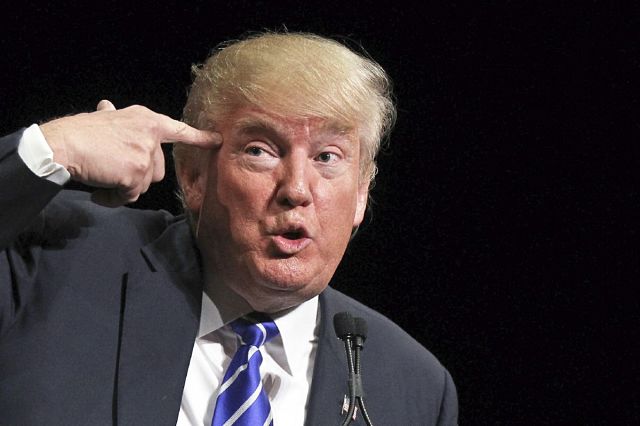
Trump told reporters in the White House today (October 23rd, 2020) that Egypt will “end up blowing up” the Grand Ethiopian Renaissance Dam. He added: “And I said it and I say it loud and clear — they’ll blow up that dam. And they have to do something.” We sure hope Egypt is not stupid enough to follow the advise of the failing U.S. President, but you can watch his crazy comments below. (Getty images)
BREAKING! Donald Trump`s Shocking Remarks About Grand Ethiopian Renaissance Dam
AFP
Trump suggests Egypt may ‘blow up’ Ethiopia dam
Updated: October 23rd, 2020
Washington (AFP)
US President Donald Trump on Friday voiced anger at Ethiopia over its construction of a huge dam on the Nile River and appeared to suggest that Egypt may destroy it.
Trump made the remarks as he announced a breakthrough normalization deal between US ally Israel and Sudan, which like Egypt fears that Ethiopia will use up scarce water resources.
“It’s a very dangerous situation because Egypt is not going to be able to live that way,” Trump told reporters in the Oval Office with leaders of Sudan and Israel on speakerphone.
“They’ll end up blowing up the dam. And I said it and I say it loud and clear — they’ll blow up that dam. And they have to do something,” Trump said.
“They should have stopped it long before it started,” Trump said, regretting that Egypt was in domestic tumult when the Grand Ethiopian Renaissance Dam project began in 2011.
Trump — a close ally of Egypt’s general turned president, Abdel Fattah al-Sisi — had agreed to Cairo’s pleas to mediate over the dam, with Treasury Secretary Steven Mnuchin leading talks.
The State Department in September said it was cutting off aid to Ethiopia due to its decision to begin filling the dam despite not reaching an agreement with the downstream nations.
“I had a deal done for them and then unfortunately Ethiopia broke the deal, which they should not have done. That was a big mistake,” Trump said.
“They will never see that money unless they adhere to that agreement,” he said.
Ethiopia says that the $4 billion project is indispensible for its electrification and development needs and has voiced hope of beginning operations in early 2021.
Egypt depends on the Nile for about 97 percent of its irrigation and drinking water.
Sudan’s Prime Minister Abdulla Hamdok, asked by Trump on speakerphone about the dam, voiced appreciation for US diplomacy and said his government wanted an “amicable solution soon” among the three countries.
—
Ethiopia Says GERD Dam Will Begin Generating Power in Next 12 Months
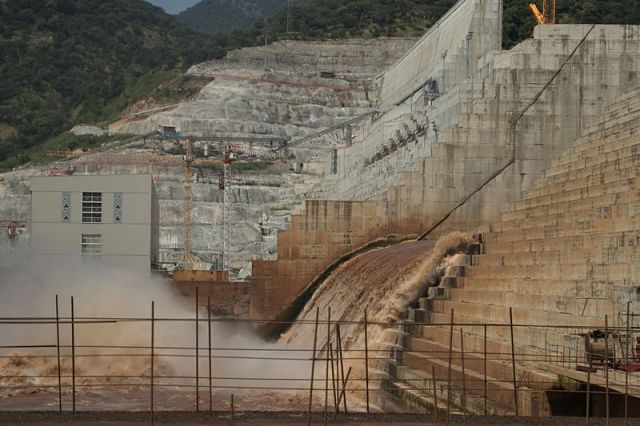
Water flows through Ethiopia’s Grand Renaissance Dam as it undergoes construction work on the river Nile in Guba Woreda. (Reuters)
Reuters
Updated: October 5th, 2020
ADDIS ABABA (Reuters) – Ethiopia’s giant new hydropower dam on the Blue Nile will begin generating power in the next 12 months, the country’s president said on Monday.
“This year will be a year where the Grand Ethiopian Renaissance Dam will start generating power with the two turbines,” Sahle-Work Zewde said in a speech to parliament.
Ethiopia is locked in a dispute with Egypt and Sudan over its $4 billion Grand Ethiopian Renaissance Dam, which Cairo has said could threaten its main supply of water.
Ethiopia bans flights over dam for security reasons – aviation chief
Reuters
Updated: October 5th, 2020
By Dawit Endeshaw
ADDIS ABABA (Reuters) – Ethiopia has banned all flights over its giant new hydropower dam on the Blue Nile for security reasons, the head of its civil aviation authority said on Monday, as the president pledged the dam would begin generating power in the next 12 months.
The move could worsen Ethiopia’s dispute with Egypt and Sudan over its $4 billion Grand Ethiopian Renaissance Dam, which Cairo has said could threaten its main supply of water.
“All flights have been banned to secure the dam,” the director-general of the Ethiopian Civil Aviation Authority, Wesenyeleh Hunegnaw, told Reuters by phone. He declined to give more details on the reasons.
Later on Monday in a speech to parliament, Ethiopia’s president Sahle-Work Zewde said: “This year will be a year where the Grand Ethiopian Renaissance Dam will start generating power with the two turbines.”
She also said that work was underway to enable a second filling of the dam within the next 12 months.
In July, Ethiopia said it had achieved its first year of filling the dam thanks to rainfall in the area.
Ethiopian Prime Minister Abiy Ahmed told the United Nations last month that the country has “no intention” of harming Sudan and Egypt with the dam, days after Egyptian President Abdel Fattah al-Sisi reiterated his concerns over the project.
Last week, air force chief Major General Yilma Merdasa told local media that Ethiopia was fully prepared to defend the dam from any attack.
Ethiopia, Egypt and Sudan failed to strike a deal on the operation of the Grand Ethiopian Renaissance Dam before Ethiopia began filling the reservoir behind the dam in July.
The dam is at the centre of Ethiopia’s bid to become Africa’s biggest power exporter.
The structure is about 15 km (9 miles) from the Ethiopian border with Sudan on the Blue Nile – a tributary of the Nile river, which gives Egypt’s 100 million people about 90% of their fresh water.
The United States decided last month to cut $100 million in aid to Ethiopia amid the dispute over the dam. A U.S. State Department official who did not want to be identified told Reuters at the time that the decision to pause some funding to Ethiopia was triggered by concern over Ethiopia’s unilateral decision to start filling the dam before an agreement.
—
Related:
UPDATE: Ethiopia-Egypt War Over GERD Has Already Started. It’s in Cyberspace
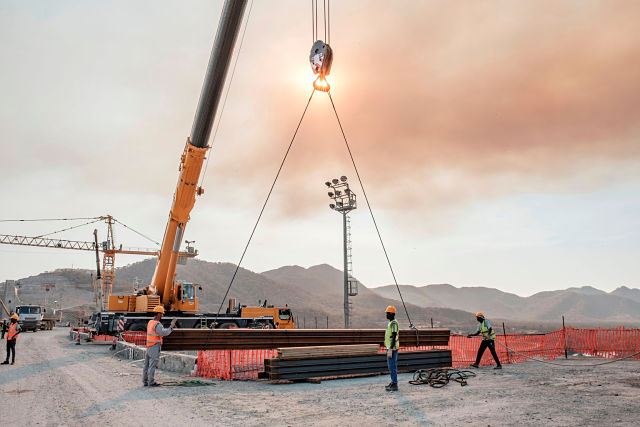
Workers move iron girders from a crane at the Grand Ethiopian Renaissance Dam. (Getty Images)
Foreign Policy
SEPTEMBER 22, 2020, 6:41 AM
The conflict between Ethiopia and Egypt over the Grand Ethiopian Renaissance Dam has already started. It’s just happening in cyberspace.
It took only a few weeks to plan the cyberattack—and a few more to abandon the world of ethical hacking for the less noble sort. But they would do anything for the Nile, the four young Egyptians agreed.
With that, the group calling themselves the Cyber_Horus Group in late June hacked more than a dozen Ethiopian government sites, replacing each page with their own creation: an image of a skeleton pharaoh, clutching a scythe in one hand and a scimitar in the other. “If the river’s level drops, let all the Pharaoh’s soldiers hurry,” warned a message underneath. “Prepare the Ethiopian people for the wrath of the Pharaohs.”
“There is more power than weapons,” one of the hackers, who asked not to be identified by name, told Foreign Policy. Also, it was a pretty easy job, the hacker added.
A few weeks later and thousands of miles away, a 21-year-old Ethiopian named Liz applied red lipstick and donned a black T-shirt and jeans. She positioned her phone on her desk and started her own kind of online influence campaign: a TikTok video. She danced to a popular Egyptian song underneath the message, “Distracting the Egyptians while we fill the dam.”
“There’s no other country that can stop us,” said Liz, who has more than 70,000 followers on the app and whose taunting video was met with praise and threats. “It’s our right.”
Rarely have young people been so passionate about an infrastructure project. But the Grand Ethiopian Renaissance Dam, which will be Africa’s largest, is more than just a piece of infrastructure. It has become a nationalistic rallying cry for both Ethiopia and Egypt—two countries scrambling to define their nationhood after years of domestic upheaval. Many Ethiopians and Egyptians are getting involved in the only way they can—online—and fomenting the first African cyberconflict of its kind, one with far-reaching and long-lasting consequences.
—
Related:
Trump Administration Confirms Cutting Aid to Ethiopia Over GERD (UPDATE)
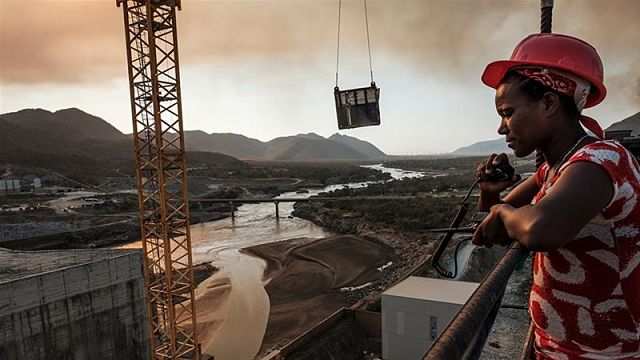
(Getty Images)
The Associated Press
Updated: September 2nd, 2020
It was an unusual example of Trump’s direct intervention on an issue in Africa, a continent he hasn’t visited as president and rarely mentions publicly.
On the guidance of President Trump, the State Department said Wednesday that the United States was suspending some aid to Ethiopia over the “lack of progress” in the country’s talks with Egypt and Sudan over a disputed dam project it is completing on the Nile River.
It was an unusual example of Mr. Trump’s direct intervention on an issue in Africa, a continent he hasn’t visited as president and rarely mentions publicly. The dam dispute centers on two of Africa’s most populous and powerful nations, Ethiopia and Egypt, and some have feared it could lead to military conflict.
A State Department spokesperson told The Associated Press the decision to “temporarily pause” some aid to a key regional security ally “reflects our concern about Ethiopia’s unilateral decision to begin to fill the dam before an agreement and all necessary dam safety measures were in place.”
It is not clear how many millions of dollars in aid are being affected, or for how long. The decision was taken by Secretary of State Mike Pompeo “based on guidance from the president,” the spokesperson said.
There was no immediate comment from Ethiopia’s government. Ethiopia’s ambassador to the United States, Fitsum Arega, this week tweeted that his country was determined to complete the dam, saying that “we will pull Ethiopia out of darkness.”
Africa’s largest hydroelectric dam has caused severe tensions with Egypt, which has called it an existential threat and worries that it will reduce the country’s share of Nile waters. Ethiopia says the $4.6 billion dam will be an engine of development that will pull millions of people out of poverty. Sudan, in the middle, worries about the effects on its own dams though it stands to benefit from access to cheap electricity.
Years of talks among the countries have failed to come to an agreement. Key remaining issues include how to handle releases of water from the dam during multiyear droughts and how to resolve future disputes.
The United States earlier this year tried to mediate the discussions, but Ethiopia walked away amid accusations that Washington was siding with Egypt. Now the three countries are reporting any progress to the African Union, which is leading negotiations.
Ethiopia had said it would fill the dam with or without a deal with Egypt and Sudan. The dam’s 74 billion-cubic-meter reservoir saw its first filling in July, which Ethiopia’s government celebrated and attributed to heavy rains, while a startled Egypt and Sudan hurriedly sought clarification and expressed skepticism.
A former U.S. ambassador to Ethiopia, David Shinn, had warned against an aid cut, writing that “playing political hardball with Ethiopia will not only fail to obtain Washington’s desired result but will probably ensure that the Ethiopian diaspora in the United States rallies against Trump.”
—
Related:
Cutting Aid to Ethiopia Haunts Trump in Election
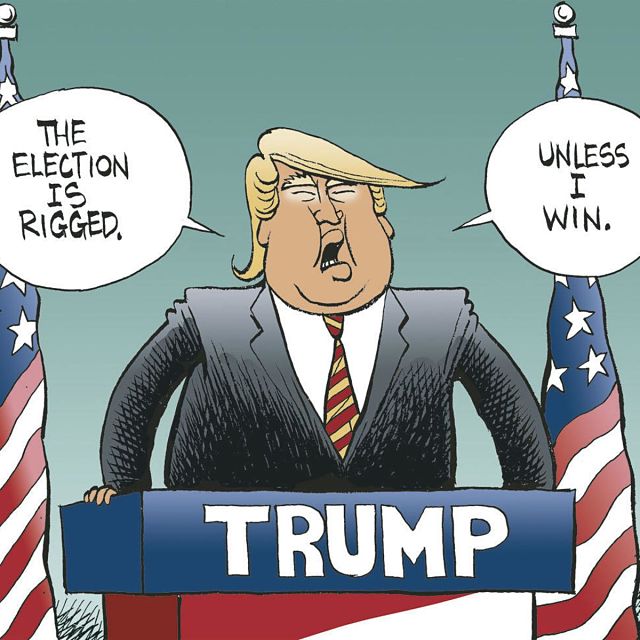
David Shinn, a former US envoy to Ethiopia said playing political hardball with Ethiopia will not only fail to obtain the desired result but will probably ensure that the Ethiopian diaspora in the US will rally against Trump and spoil his chances in the close contest. “There are sizeable Ethiopian-American communities in key states such as Georgia, Texas, and Virginia,” he said. (Image: Tulsa World)
AA
Addis Getachew | ADDIS ABABA, Ethiopia
Updated: September 2nd, 2020
Ethiopian-Americans against US cutting $130M aid to Ethiopia to enforce Egypt friendly agreement on sharing Nile waters
The US has now formally stepped in, to support Egypt and punish Ethiopia over the river water sharing dispute between the two African countries.
Last week, the Trump administration announced blocking a $130 million aid that had been earmarked to support Ethiopia’s defense and anti-terrorism efforts.
Secretary of State Mike Pompeo signed the cut in aid, ostensibly to build pressure on Ethiopia, a rugged landlocked country in the Horn of Africa.
While it is not clear to what extent the US decision will affect Ethiopia, but it has united everyone in the country and the diaspora.
“We have officially requested the US administration that they give us an explanation,” said Ethiopia’s Ambassador to Washington Fitsum Arega, while taking to Twitter.
David Shinn, a former US envoy to Ethiopia said playing political hardball with Ethiopia will not only fail to obtain the desired result but will probably ensure that the Ethiopian diaspora in the US will rally against Trump and spoil his chances in the close contest. “There are sizeable Ethiopian-American communities in key states such as Georgia, Texas, and Virginia,” he said.
Ethiopian government led by Prime Minister Abiy Ahmed had earlier rejected an agreement brokered by the US Treasury Secretary Steven Mnuchin in February related to the filling and operation of the $5billion Grand Ethiopian Renaissance Dam (GERD). Ethiopia said the US proposal was heavily tilted towards Egypt.
Relations between Cairo and Addis Ababa have strained over recent times, over the filling and operation of the dam that has come upon the Blue Nile, one of the tributaries of the River Nile.
Since June, the African Union has been mediating now to evolve a win-win formula between Ethiopia, Sudan, and Egypt.
The AU has entrusted its Bureau of the Assembly of Heads of State and Government including South Africa, Kenya, Mali, and Democratic Republic of Congo (DRC) to prevent any escalation between these countries. The European Union, the World Bank, and the US continue as observers in the group.
—
Related:
Mike Pompeo is the Worst U.S. Secretary of State in History
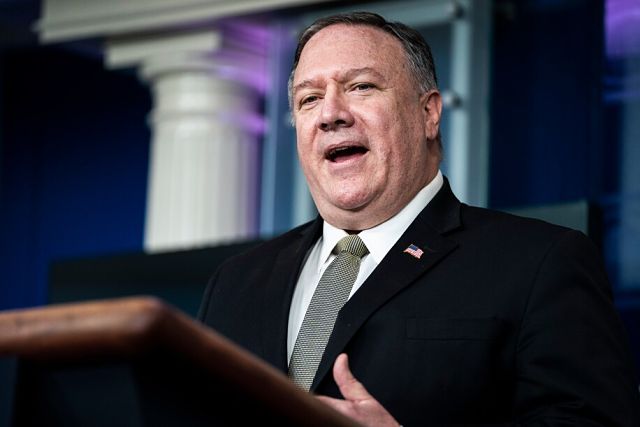
Mike Pompeo’s handing of the Trump administration’s foreign policy “has led to some of the worst diplomatic damage the United States has suffered in decades — especially in relations with its closest allies,” writes The Washington Post’s Deputy editorial page editor and columnist Jackson Diehl. (Photo: The Washington Post)
The Washington Post
Updated: August 30, 2020
As secretary of state, Mike Pompeo has presided over the collapse of negotiations with North Korea, the failure of a pressure campaign against Iran and an abortive attempt to oust Venezuela’s authoritarian regime. On his watch, China has carried out genocide in its Xinjiang region and the suppression of Hong Kong’s freedoms without resistance from Washington until it was too late.
Pompeo has failed to fill dozens of senior positions at the State Department, and hundreds of career diplomats have left or been driven out in political purges. Morale is at a historic low: In staff surveys, there has been a 34 percent increase between 2016 and 2019 in those who say the State Department’s senior leaders “did not maintain high levels of honesty and integrity.” Maybe that’s because Pompeo himself has defied legal mandates from Congress, skirted a law restricting arms sales to Saudi Arabia, tasked staffers with carrying out errands for himself and his wife, and fired the inspector general who was investigating his violations.
Last week, Pompeo crossed yet another ethical line by speaking before the Republican National Convention, thereby disregarding the State Department’s explicit legal guidance against such appearances. The speech he delivered was weak and littered with false or simply ludicrous claims, such as that the recent diplomatic accord between Israel and the United Arab Emirates is “a deal that our grandchildren will read about in their history books.” Maybe if they major in Middle Eastern affairs.
With his ambitions likely fixed on a presidential candidacy in 2024, Pompeo is undoubtedly hoping most of the diplomatic disasters will ultimately be blamed on President Trump, especially if Trump loses the November election. But the former Kansas congressman should not get off so easy. Yes, it’s Trump’s foreign policy. But Pompeo’s steering of it has led to some of the worst diplomatic damage the United States has suffered in decades — especially in relations with its closest allies.
—
Related:
Pompeo approves plans to halt aid to Ethiopia over Nile dam dispute
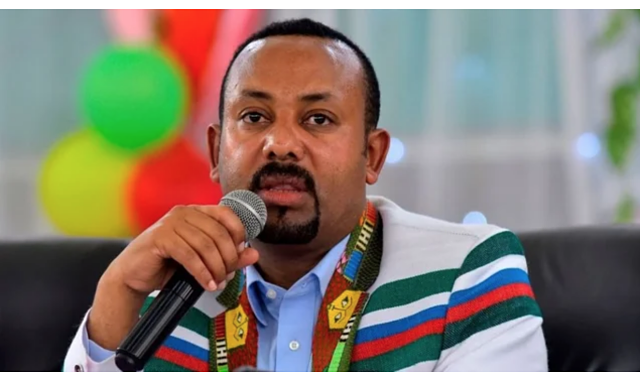
Getty Images
08/28/20
Secretary of State Mike Pompeo has approved plans to halt some U.S. aid to Ethiopia, Foreign Policy reported on Friday.
The halt in aid comes as the U.S. mediates a dispute over a dam on the Nile River that’s pitted Ethiopia against Egypt and Sudan, according to Foreign Policy. The decision could impact up to $130 million of assistance to programs including security, counter-terrorism and anti-human trafficking.
“There’s still progress being made, we still see a viable path forward here,” a U.S. official told the magazine. “The U.S. role is to do everything it can to help facilitate an agreement between the three countries that balance their interests. At the end of the day it has to be an agreement that works for these three countries.”
The State Department did not immediately respond to a request for comment from The Hill.
Ethiopia and Egypt are at a standstill in negotiations over how the dam on a tributary of the Nile will be managed.
Egypt and Sudan, which depend on the Nile for much of their fresh water, are opposed to any development they say will impact the flow downstream, including the 6,000-megawatt power plant Ethiopia hopes to develop at the dam.
—
Is the Trump Administration Using Aid to Bully Ethiopia Over Nile Dam?
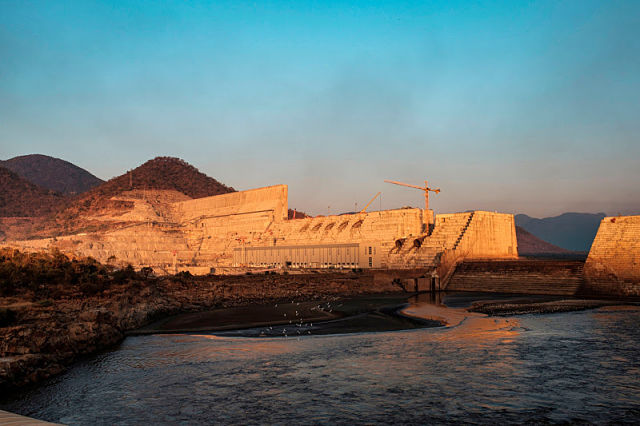
It’s too bad that the U.S. has decided to take the wrong side in a local African dispute regarding the Grand Ethiopian Renaissance Dam. As the following FP article reports the Trump administration is cutting off “some foreign assistance” to Ethiopia over GERD. The scheme may be intended to tip the scale in Egypt’s favor, but if history is any indication this kind of foreign intimidation does not work in Ethiopia. It’s also worth mentioning that the dam, a $4.5 billion hydroelectric project, is being fully funded by the Ethiopian people. (Getty Images)
U.S. Halts Some Foreign Assistance Funding to Ethiopia Over Dam Dispute with Egypt, Sudan, Some U.S. officials fear the move will harm Washington’s relationship with Addis Ababa.
Updated: AUGUST 27, 2020
Secretary of State Mike Pompeo has approved a plan to halt U.S. foreign assistance to Ethiopia as the Trump administration attempts to mediate a dispute with Egypt and Sudan over the East African country’s construction of a massive dam on the Nile River.
The decision, made this week, could affect up to nearly $130 million in U.S. foreign assistance to Ethiopia and fuel new tensions in the relationship between Washington and Addis Ababa as it carries out plans to fill the dam, according to U.S. officials and congressional aides familiar with the matter. Officials cautioned that the details of the cuts are not yet set in stone and the finalized number could amount to less than $130 million.
Programs that are on the chopping block include security assistance, counterterrorism and military education and training, anti-human trafficking programs, and broader development assistance funding, officials and congressional aides said. The cuts would not impact U.S. funding for emergency humanitarian relief, food assistance, or health programs aimed at addressing COVID-19 and HIV/AIDS, officials said.
The move is meant to address the standoff between Ethiopia and other countries that rely on the Nile River downstream that have opposed the construction of the massive dam project, called the Grand Ethiopian Renaissance Dam. Egypt sees the dam’s construction as a core security issue given the country’s heavy reliance on the river for fresh water and agriculture, and in the past Egyptian President Abdel Fattah al-Sisi has hinted his country could use military force to halt the dam’s construction.
Some Ethiopian officials have said they believe the Trump administration is taking Egypt’s side in the dispute. President Donald Trump has shown a fondness for Sisi, reportedly calling him his “favorite dictator” during a G-7 summit last year. Officials familiar with negotiations said the Trump administration has not approved parallel cuts in foreign assistance to Egypt.
Administration officials have repeatedly assured all sides that Washington is an impartial mediator in the negotiations, which mark one of the few diplomatic initiatives in Africa that the president has played a personal and active role in. These officials pointed out that Egypt has accused the United States of taking Ethiopia’s side in the dispute as well.
“There’s still progress being made, we still see a viable path forward here,” said one U.S. official. “The U.S. role is to do everything it can to help facilitate an agreement between the three countries that balance their interests. At the end of the day it has to be an agreement that works for these three countries.”
But the move is likely to face sharp pushback on Capitol Hill, according to Congressional aides familiar with the matter. State Department officials briefed Congressional staff on the decision on Thursday, the aides said, and during the briefing insisted that the U.S.-Ethiopia relationship would remain strong despite a cutback in aid because the United States can have tough conversations “with friends.”
“This is a really fucking illogical way to show a ‘friend’ you really care,” one Congressional aide told Foreign Policy in response.
—
Join the conversation on Twitter and Facebook.





